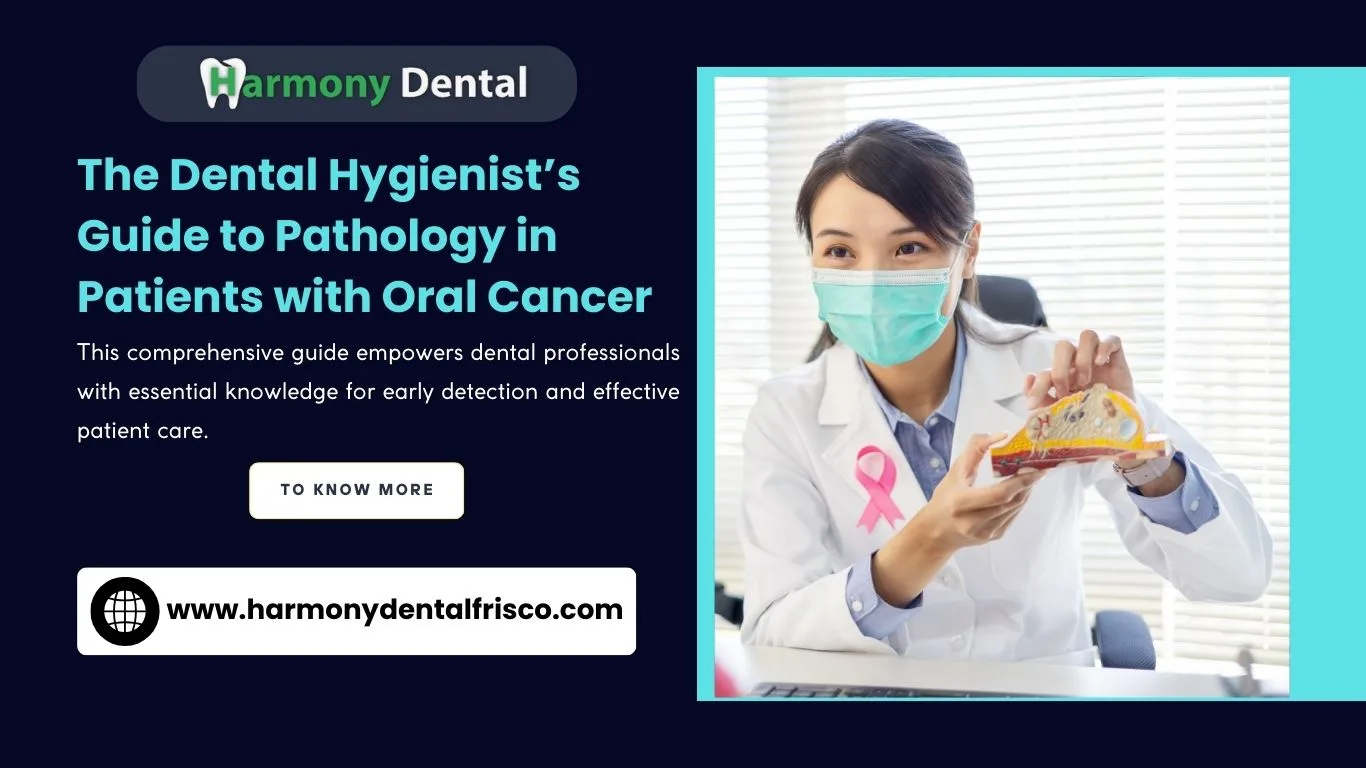Dental Hygienist’s Guide - Pathology in Oral Cancer Patients
Oral cancer is a critical health issue affecting millions worldwide. As dental hygienists, our role in detecting, managing, and supporting patients with oral cancer is crucial.
This guide provides an overview of pathology in patients with oral cancer, highlighting the key aspects dental hygienists need to understand to provide comprehensive care.
Understanding Oral Cancer
Oral cancer refers to cancers of the mouth, lips, tongue, cheeks, floor of the mouth, hard and soft palate, sinuses, and pharynx. The most common type is squamous cell carcinoma, which accounts for over 90% of cases. Key risk factors include tobacco use, heavy alcohol consumption, HPV infection, prolonged sun exposure (for lip cancer), and a history of oral cancer.
The Role of Dental Hygienists in Early Detection
Early detection of oral cancer significantly improves prognosis. Dental hygienists are often the first to notice changes in a patient's oral health. Key signs to look for include:
- Persistent sores or ulcers that do not heal
- White or red patches in the mouth
- Unexplained bleeding
- Lumps or thickening of tissues in the mouth
- Difficulty swallowing or persistent sore throat
- Numbness or pain in any area of the mouth or lips
Conducting thorough oral examinations during routine check-ups is essential. Utilize tools such as visual inspections, palpation, and possibly adjunctive screening devices to identify suspicious lesions.
Understanding Pathology Reports
Pathology reports provide detailed information about the nature of the cancer. Key components include:
- Diagnosis: Type and grade of cancer
- Tumor Margins: Whether cancer cells are present at the edges of the biopsy sample
- Lymph Node Involvement: Indicates if cancer has spread to nearby lymph nodes
- Staging: Describes the extent of cancer spread (using the TNM system - Tumor, Node, Metastasis)
Understanding these components helps dental hygienists collaborate effectively with the broader healthcare team, ensuring patients receive comprehensive care.
Management and Support
Pre-Treatment Care:
- Educate patients about oral cancer and its implications.
- Conduct a thorough dental examination to identify and treat existing dental issues.
- Discuss the importance of maintaining oral hygiene before, during, and after cancer treatment.
During Treatment:
- Monitor for side effects of cancer treatments such as chemotherapy and radiation therapy, which can cause mucositis, xerostomia (dry mouth), and increased risk of infections.
- Provide palliative care to manage symptoms and improve quality of life. This can include recommending saliva substitutes, fluoride treatments, and pain management strategies.
Post-Treatment Care:
- Continue regular follow-ups to monitor for recurrence or new oral health issues.
- Educate patients on the long-term effects of treatment and the importance of ongoing oral care.
- Offer psychological support, acknowledging the emotional and psychological impact of cancer diagnosis and treatment.
Patient Education and Counseling
Education is a critical component of patient care. Dental hygienists should:
- Inform patients about risk factors and encourage lifestyle changes such as quitting smoking and reducing alcohol consumption.
- Discuss the importance of a balanced diet and proper hydration.
- Teach self-examination techniques so patients can monitor their oral health between visits.
Oral cancer research is continuously evolving. Dental hygienists should stay updated on the latest advancements through continuing education courses, attending professional conferences, and subscribing to relevant journals. Understanding new diagnostic tools, treatment options, and best practices ensures that we provide the highest standard of care.
As dental hygienists, we play a vital role in the early detection, management, and support of patients with oral cancer. By understanding the pathology, staying informed about the latest advancements, and providing compassionate care, we can significantly impact our patients' outcomes and quality of life. Together, we can help fight oral cancer and support our patients through their journey.
By staying vigilant and informed, dental hygienists can make a profound difference in the lives of patients with oral cancer. Let's commit to continuous learning and compassionate care to improve outcomes and support our patients every step of the way.
Here's to a brighter, healthier smile with Harmony Dental!
📞 Call: +1 469-906-2244
🌐 Visit Our Website: harmonydentalfrisco.com

